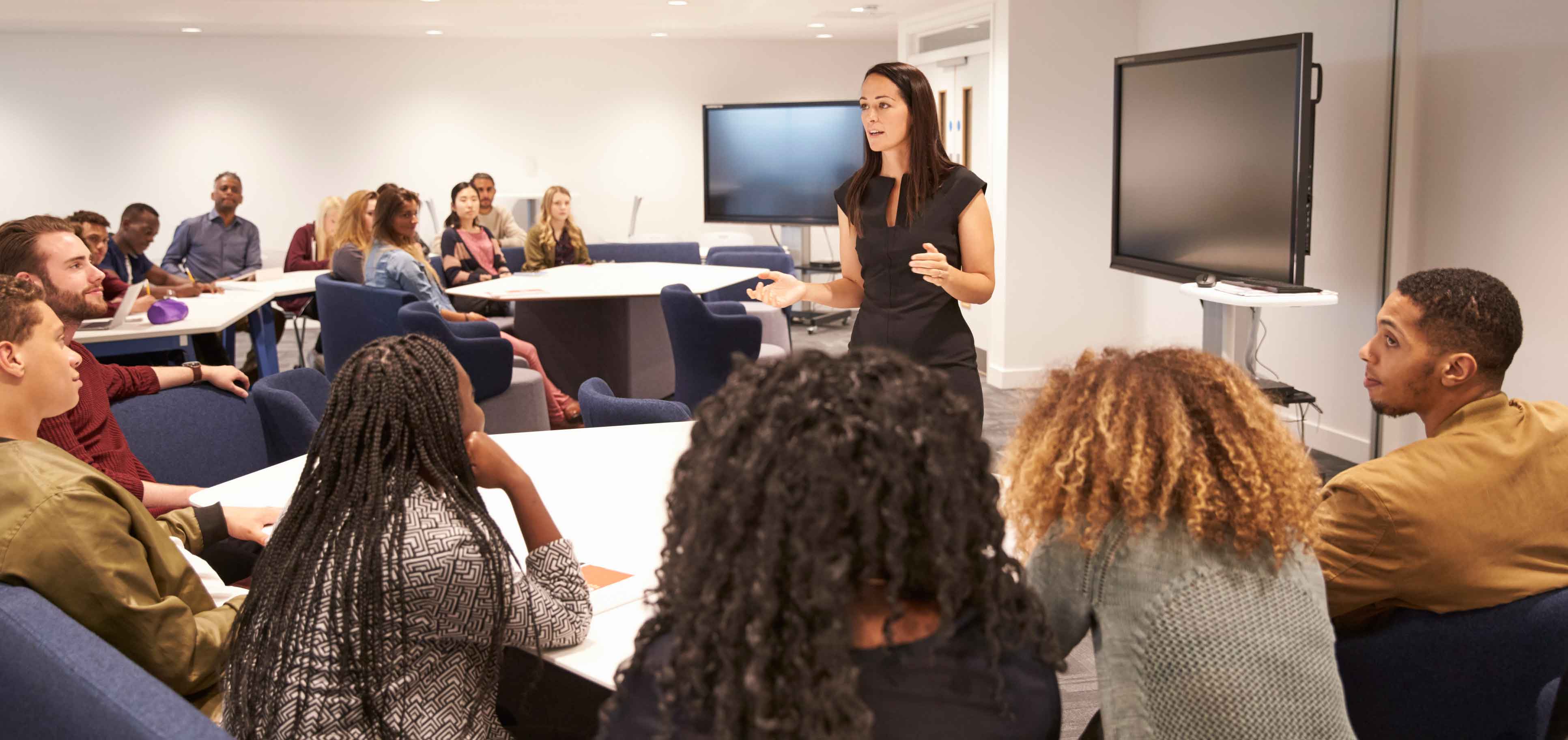Shifting from Undergrad to Grad School the Smart Way

For most people, the transition from college to graduate school can be tough. In fact, the Council of Graduate Schools estimates that 38% of students who enter graduate school seeking a Ph.D. in chemistry won’t receive the degree.
Some of people who don't complete their degree simply change their minds along the way. Others find themselves overwhelmed by the vast differences between graduate and undergraduate programs.
But the transition from undergrad to grad school doesn’t have to throw you completely off track. Here are some tips for navigating the transition from undergrad to grad school.
Make sure you like research
After earning her undergraduate degree at the University of California, Riverside, DeVonna M. Gatlin knew she loved chemistry. Going on to earn a Ph.D. was always Gatlin’s ultimate goal, but she didn’t have any research experience. An advisor suggested that she start her graduate education with a research-based master’s program. “If you don’t like research and all that comes with it, then it’s going to be hard to thrive within a research Ph.D. program,” Gatlin says.
Typically, your first year of graduate school is spent taking classes, working as a TA, and joining a research group. Once you join a group, you start doing original research. By the time you graduate, you will be spending from 60 to 80 hours per week on your research.
Gatlin says she enjoyed her master’s program at the University of Cincinnati and continued to a Ph.D. program, where she’s currently wrapping up her fourth year. Her advice to undergraduates considering graduate school: “Try to get research experience during the academic year for credit or during the summer to see if this is actually what you want to do going forward, because a Ph.D. or any graduate school level program where you actually have to write a thesis is research-based.”
Set clear boundaries
Even with some research experience, graduate school can require a major adjustment. You’ll need to work more independently than you ever did as an undergraduate. Grades won’t matter much — partially because everyone in your classes is equally intelligent and talented, and partially because you only take classes for about a year or two. Most of your graduate career will be spent on research.
Because everyone’s research will move at a different pace, charting your own course from the beginning is essential. “Don’t compare yourself with other students,” Gatlin advises. “Instead, try to beat the person you were yesterday. No one else will be on the path that you are taking, or in your research lab, so even though you’re coming in with your cohort of students, everybody’s pace will be different.”
Alena Smith, Ph.D., is a post-doctoral molecular oncologist and biochemist at Louisiana State University, Shreveport (LSUS). She has the same philosophy as Gatlin: “Stay on your side of the street.” In other words, develop your path.
When Smith started graduate school, she had two elementary-aged children who were on the autism disorder spectrum, and she was also older than many in her cohort. She learned to manage the various stresses of graduate school life by setting firm boundaries and sticking to them.
“One of the things that I stress for my students is maintaining the balance of their lives. They have to set boundaries, and those boundaries include time management skills,” Smith says. “When we see students start taking the initiative to really be responsible, you see their stress level go down, and they’re able to manage their workload better.” Having firm boundaries can help you focus on your own progress.
Cultivate a support group
Your graduate school path shouldn’t be lonely. Natalie Burford, who is finishing her thesis in a research-based master’s program in chemistry at LSUS, suggests building a strong support group, which will be crucial to dealing with the stresses and negative feedback that can come with the learning process.
Although most graduate students live off-campus, there are usually plenty of opportunities to meet colleagues. Many programs provide collective office space for first-year students. While a cubicle farm may sound like a “Dilbert-esque” nightmare, it is also where you can meet other students, compare notes, study, and grade papers. Graduate students also frequently form clubs that are less formal analogs of ACS student chapters, and that can be great sources of support.
Smith found such a support group during graduate school that was invaluable. “You cannot believe how helpful it is just knowing that other people are going through that exact same thing!” she says.
Pick the right principle investigator
At some point during your first year you will join a research laboratory. Finding the right principal investigator, or PI, and the right research group is crucial to a positive graduate experience.
“Getting your Ph.D. is not about just the science,” says LSUS’s Smith. “It’s also about the process, and it’s the process that’s going to tear you down if you and your PI are complete opposites.” Vet your PI and lab mates just as you would any long-lasting relationship because for a Ph.D. program, you’ll likely be there for four to seven years.
Don’t pick a lab because it seems like a good fit for now. Keep the big picture in mind. ACS’s ChemIDP (an individual development planning tool) is a great place to start if you aren’t sure what your big picture should look like. The online tool can help you explore chemistry careers, assess your strengths, and set goals.
Consider also how you like to work, what types of people you like to work with, the skills you want to learn, and what type of career you want. “Ask yourself,” says Gatlin, “‘What do I want to get out of the program?’ Also, find an advisor — or more likely, a combination of resources — to help you achieve those goals.” For instance, she explains, you might really like the research and you may like a particular advisor, but you may also want to learn other skills that will benefit your future career.
During her own lab interview process, Gatlin recalls asking lots of questions, both of potential PIs and other lab members. Does the lab encourage attendance at scientific meetings and conferences? How long does it take the average graduate student to complete her project? What professional development opportunities are available? Will the PI support your career goals, be they in academia, industry, or government?
Smith wholeheartedly agrees. Interview both the PI and current students, she suggests — informally, if possible. How does a PI manage the lab? How does the grant and manuscript process work in the lab? How do group members interact? What kind of support do they provide? There are no right or wrong answers to these questions — just answers that match (or don’t match) what you are looking for.
“It may seem self-interested, but this is your journey!” Smith says. “Most of us have to carve out our road.”
Give it time
The most important thing you can give yourself is time to find your niche, both in life and in your science.
“It’s okay to feel like you don’t know what you’re doing, as long as you know this is where you want to be,” Gatlin says. She cautions students to not be too hard on themselves if they don’t feel fully comfortable in graduate school, or if they don’t find their stride immediately. “You’re not going to find it in your first year; you’re not going to find it in your second year…. Sometimes it’s not even going to click until your third or fourth year,” Gatlin says.
“You really just have to give yourself the time you need to grow as a graduate student,” Smith adds. “And exercise. Seriously. You have to exercise; you have to stay healthy.”






